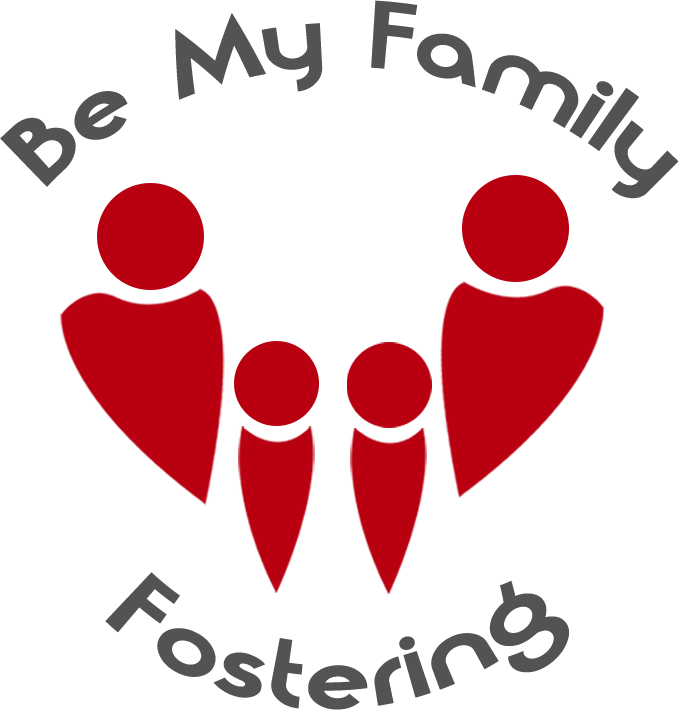Role Of A Foster Carer
By becoming a foster carer you will be responsible for the care of children in your home and you will be supporting a child at a time when they need it most. You will be helping them to build a better life for themselves.
You will work with social work staff and all those involved in helping children fulfill their potential. Your responsibilities will include the following:
Helping children to achieve the FIVE outcomes.
The government has identified the five outcomes that are most important to children and young people whatever their background or circumstances. You will be expected to work with others to help children achieve these outcomes.
- Promote the healthy growth and development of children
- Encourage healthy lifestyles and promote healthy choices
- Provide a safe and caring environment
- Ensure children are kept safe from harm and abuse and are taught how to get help should anything happen
- Provide day-to-day care for children, being mindful of the specific needs of children who are separated from their birth family
- Promote the secure attachment of children to adults
- Act as an advocate for each child
- Ensure children attend school and take an active role in a child’s education by attending parent’s evenings and ensuring that homework is completed
- Help children to achieve personal and social development and enjoy recreation
- Promote positive behaviour and encourage children to support the community and environment
- Ensure the children you are looking after are encouraged to develop an understanding of their origins, religion and culture
- Encourage children to develop positive relationships and to have contact with significant family members
- Help children to develop self-confidence and enable the children and young people who are moving on to do so in a positive manner
- Encourage young people to engage in further education, employment or training after leaving school
- Ensure children have access to transport and appropriate resources
You will need to have time and energy to invest in a child or young person.
All new foster carers receive training before being approved. During your career as a foster carer, you are required to develop skills by trying something new, attending a training session, seeking advice from another foster carer or social worker or attending a conference.
You must be able to communicate effectively, not only with children and young people but with social workers, the children’s birth families and others concerned with the wellbeing of the children.
Contact with their own families is very important to children and young people in foster care and, as a foster carer, you will need to help maintain this if it is felt to be appropriate. This is important, regardless of any personal feelings you may have about the child’s parents. Contact can be direct (face-to-face) or indirect (telephone, email or letters) and you will receive training to help you manage this.
A team approach is necessary to help children cope with separation, loss, abuse and neglect, settling in long-term foster care or moving onto adoption. Foster carers link to a large network of people: social workers, children’s families, schools, health care workers, counselors, designated teachers and the fostering service.
You will:
- take part in implementing the plan agreed for the child
- actively participate in reviews, case conferences, court hearings and keep written records
- deal responsibly with confidential information, in line with the Agency’s policy.

There may be extra responsibilities depending on the kind of foster placement you provide.
- Work with parents, encouraging and supervising regular and frequent contact, where this is seen to be in the child’s best interests.
- Prepare children for the move back home.
- Help children to understand their present situation, accepting that they may grieve for the family they have lost.
Work closely with adoptive parents to ensure a smooth transition for the child from foster care to adoptive home.
- Support young people in further education and/or employment and encourage them in making long term plans.
- Help young people develop their own social networks.
- Help young people develop the skills they need to live independently and assist and support them in their move to adulthood.
The responsibilities for caring for these young people are very much the same as teenagers in the UK, although there are some additional responsibilities due to their cultural and religious requirements.
-
- Support the young person to adapt to life in the UK and appreciate that they have no carers or parents in the UK.
- Respond positively to the young person’s cultural identity; build up an understanding of their culture and accommodate their needs in day to day life.
- Support and encourage the young person in their religious activities and help them develop their own religious networks.
- Support the young person’s emotional needs appreciating that they may have suffered trauma in their country of origin and help them come to terms with this.
- Work with a team of interpreters and learn to overcome language barriers in day to day life.
- Support the young person in attending the Home Office / solicitor appointments.
-
- Help the child settle into the family and community and form their own social network.
- Encourage the child to fulfill their potential by providing stimulation and activities.
- Help the child to develop a positive identity and awareness of their ethnic origin, religion and culture.
- Encourage the child to sustain memories of their birth family, acknowledging that birth relatives are important to a child, and supporting contact with them, where appropriate.
